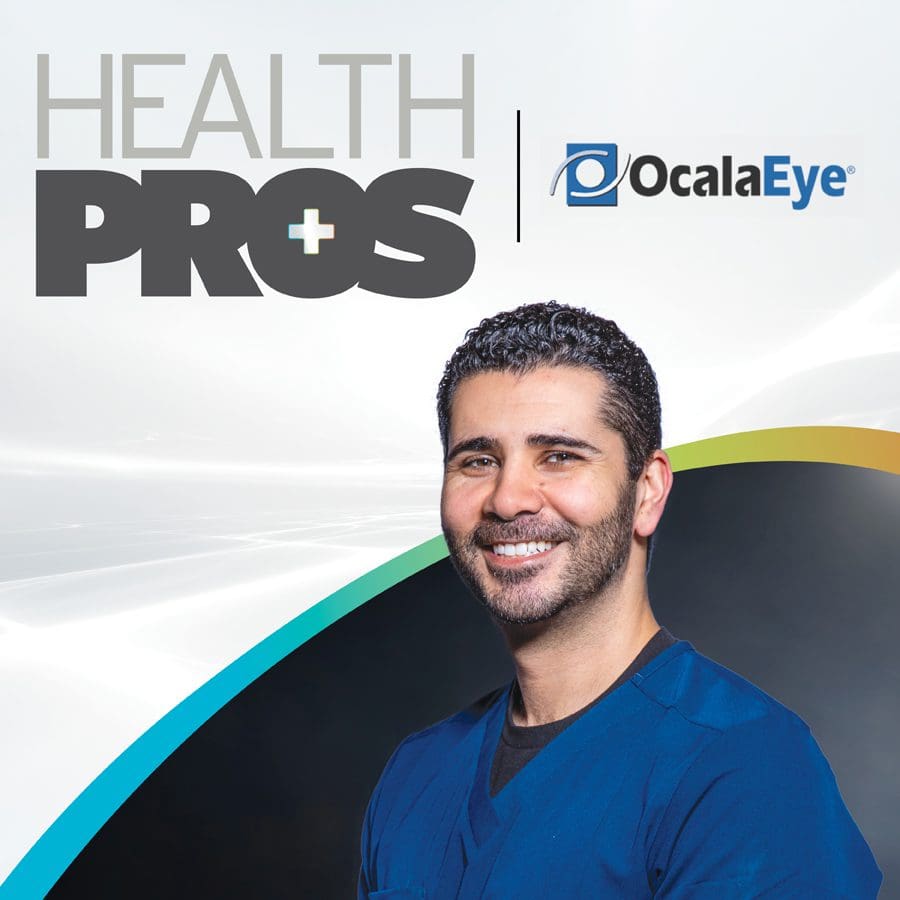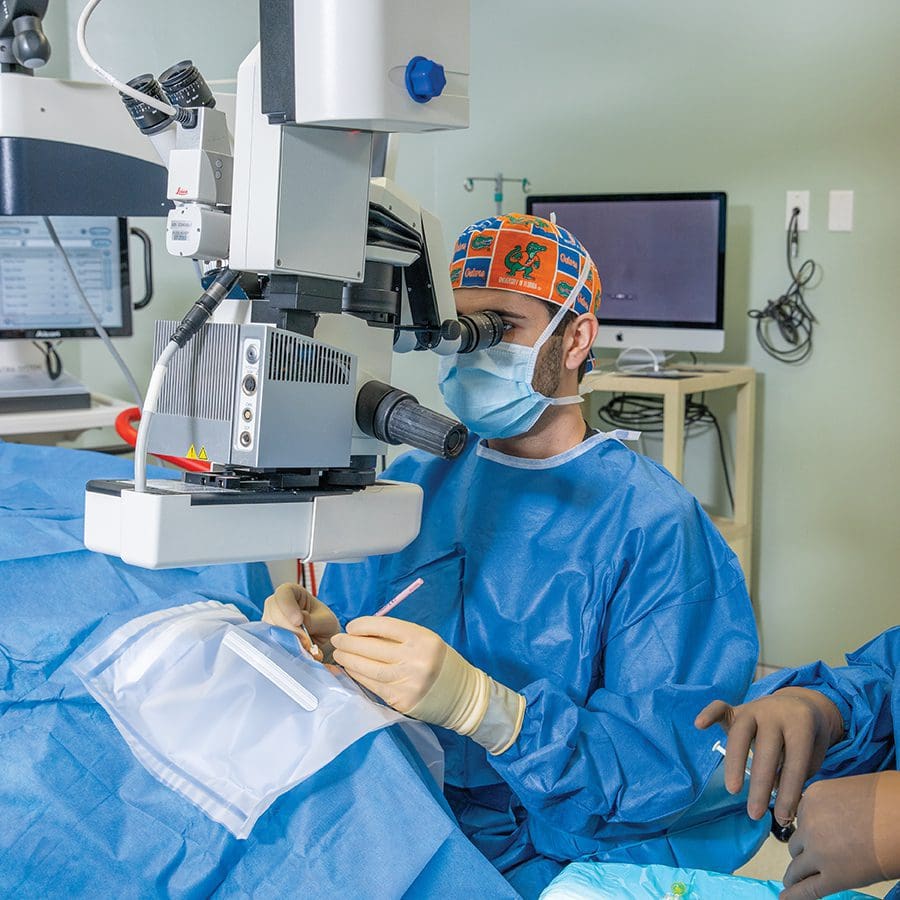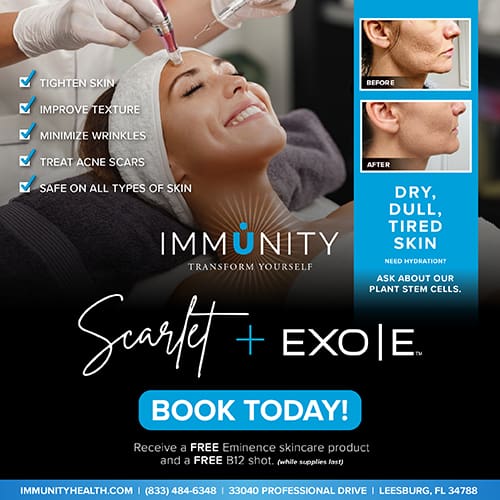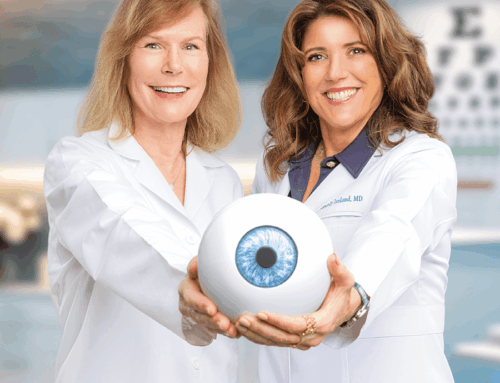
By Akers Editorial
Health Pros: Ocala Eye

A true visionary
Dr. Hussain Elhalis has his eyes set on providing optimum results for patients.
Those annoying eyeglasses that easily scratch, bend, and break.
Those bothersome contact lenses that become irritating, are no longer comfortable, and leave you with dry eyes.
Dr. Hussain Elhalis, a highly respected and trained ophthalmologist at Ocala Eye, offers solutions to reduce or eliminate a patient’s need for contacts or eyeglasses.
What can you offer to patients who no longer want to wear contact lenses or eyeglasses?
We offer a procedure called refractive lens exchange, which involves removing the natural lens of the eye and replacing it with an artificial intraocular lens. It’s an excellent option for patients who are 40 and older who become aggravated because they need reading glasses to clearly see their computer and cell phones. In the past, we performed LASIK surgery for people in this age range. However, LASIK only fixes one side of their vision—either distance or up close. Refractive lens exchange helps correct nearsightedness, farsightedness, and even early cataracts. Simply put, refractive lens exchange offers a more permanent solution to their vision problems. Patients who undergo this procedure will not develop cataracts and thus won’t have to worry about cataract surgery down the road. Patients are very satisfied that they can maintain their distance vision but no longer need to wear glasses or contacts to see up close. Although refractive lens exchange is not a new procedure, the outcomes we deliver are far superior today thanks to the advanced implant technology.
Can you tell me about cataract surgery?
Due to age, most everyone will develop cataracts during their lifetime. The procedure is similar to refractive lens exchange in that I swap out the cloudy natural lens of the eye, or cataract, with a new artificial lens. For patients who have cataracts in both eyes, the procedures are performed separately.

Do these surgeries come with any downtime?
We ask patients to take it easy with physical activities for a week or so, but not much more than that. With cataract surgery and refractive lens exchange, patients are seeing better on the second or third day. We also ask them to go light on physical activity for a week. We will ask all surgical patients to not swim in a pool for a few weeks because we consider it dirty water and we want them to avoid risk of infection.
How can these procedures improve quality of life for your patients?
Before the surgery, they would have to wake up in the morning and immediately reach for their glasses. That is an issue that frustrates them. During the coronavirus pandemic, their glasses would get fogged up when wearing masks. Also, patients were getting headaches when looking at the computer through their computer glasses. After the surgery, they enjoy a lot of freedom in their day-to-day activities. Many of my patients participate in tennis and other activities, and now that they no longer need glasses, they feel like they are performing better.
What are the reactions of your patients when they realize their vision has been improved?
I had a patient tell me she never realized that leaves had so many details. Another patient told me how she appreciates being able to read labels and price tags when she’s out shopping without having to pull out her glasses. Simply put, they love being rid of the burden of eyeglasses and contact lenses. Eyeglasses can become easily broken or lost. Now, they no longer have to worry about those things.
Why do you enjoy being part of the Ocala Eye team?
I started my career at Ocala Eye eight years ago. What I enjoy most about being here is providing the outcomes that patients desire. Patients come to us for specific problems, and for the most part we have a solution. Of course, we do a very thorough screening to make sure a patient’s eye is healthy and he or she is a good surgical candidate. Our dedication to patient care is another reason I love being at Ocala Eye. We have 10 ophthalmologists and a team of optometrists all dedicated to quality eyecare. When we look at our benchmarks, our complication and infection rates are less than one-third of the national average.
Dr. Elhalis’ credentials, experience, expertise, thoroughness, and bedside manner have earned him a stellar reputation from patients and colleagues alike. More importantly, he stays abreast of the latest diagnostic and treatment options in the eye care industry to improve quality of care and deliver excellent outcomes.









































